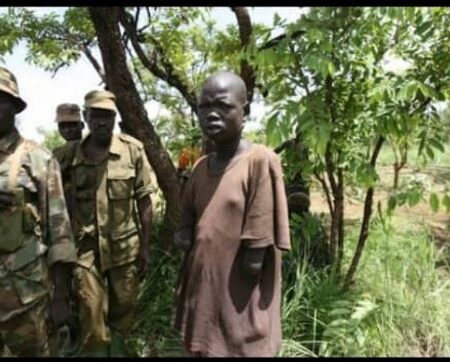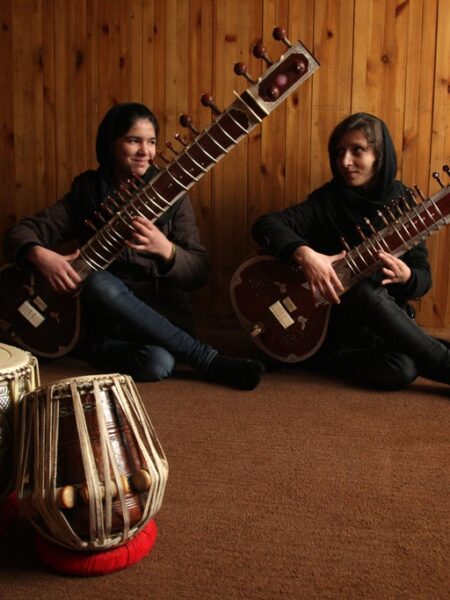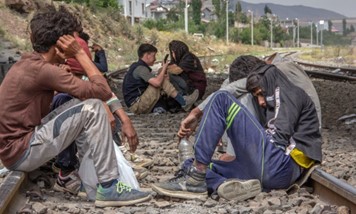Throughout the course of time, education in Afghanistan has been rare in rural areas and almost exclusively confined to the capital Kabul (PBS, 2006). Considering the fact that the foundation of education in Afghanistan was laid in 1875, the number of schools did not exceed four until 1919, when for the first time, King Amanullah Khan (1919–1929) made primary education compulsory for all, created schools for girls, and sent some female students to Turkey for education (Khwajamir, 2016). However, religious conservatives argued that it was against Sharia and requested to close the schools for girls. As Amanullah Khan could not convince them, he closed the schools for a while, but later reopened them. Despite its problems, the situation was better for girls during his reign, but at the end of it, Habibullah Kalakani who became the ruler of Afghanistan in 1992 closed the schools for girls and mandated that education was just for boys.
In addition, new schools were built and girls’ schools were reopened under King Nadir Shah’s regime (1929–1933). Kabul Medical Faculty, which was founded in 1932, serves as the primary center of higher education. Moreover, during the period of Zahir Shah (1933-1973), education and training progressed, though somewhat slowly. Students were sent to foreign countries like Germany, India, and the US. The first university in Afghanistan, Kabul University which is located in Kabul, was also founded during his regime. However, girls’ education was shifted after the Taliban’s control in the 1990s. (Moghaddam, 2022). According to the International Rescue Committee, after the Taliban’s takeover in August 2021, women are increasingly bearing the brunt of violence and are unable to receive a proper education. (2021). According to a report released by the Afghanistan Ministry of Education in 2012, 10.5 million pupils attended 16,600 schools and training facilities under Hamid Karzai’s administration (2001–2014).
During the time of Ashraf Ghani (2014 – August 2021), girls were able to continue their education. Primary school-aged and high school-aged girls were learning and female literacy doubled in his time. (Toby, 2022) Also, women were able to attend universities and schools despite the constant threats they received from previous controllers, such as the Taliban and other terrorist groups. It is also assumed that girls were suffering from going to school due to the low security and harassment issues at that time. However, as a result of the sudden Taliban takeover in 2021, many young, ambitious girls feel that they may not be able to receive an equal education to their male counterparts in the country.
Literature Review
Although much research has been done on the topic of female education in Afghanistan pieces of them have focused on their feelings after the arrival of the Taliban in 2021. Several studies have also been conducted in the context of girls having problems in terms of participating in political matters and encountering violence from many sources.
One of the studies has concentrated on women who participated in politics in Afghanistan. OXFAM (n.d) measured some of the most significant issues raised by Afghan women as a result of international backing as well as recent setbacks to their achievements. The author suggested that on a community scale, women lacked the authority to accept or reject insurgency reintegration.
Another study revealed the impact of violence against women in Afghanistan. Sarmad and Sultani (2013) sought to analyze and evaluate these events that occurred during the first six months of 2013. The authors included 4,154 cases of violence against women obtained from 1,179 complainants in the 27 provinces of Afghanistan. They indicated that physical, sexual, economic, verbal, and other forms of abuse are among the most common types of violence and they are all linked in some way to harmful traditions and customs.
Other studies have looked at the reasons for not allowing girls to continue their education in Afghanistan. Mashriqi (2016) shows that there are barriers that prevent Afghan women from pursuing higher education even though they value it. He focuses on the fact that when girls were granted education and other rights in countries with severe social and political problems, society improved. He thus emphasizes that both males and females are needed in the attempt to promote peace, economy, healthcare, and other positive elements in Afghanistan. Afghan women who enroll in higher education institutions share comparable traits with boys and educated women have the potential to change the country.
Haqmal (n.d) examines the main reasons preventing women from having access to education in Afghanistan despite the efforts of the international community. He includes 500 women from the ages of 16 to 50 in the province of Kabul who were asked to fill out a questionnaire to study the security of Afghan women’s education. The results show that the main reasons for not being able to attend school ranged from family pressure to lack to lack of access to schools for girls to poor financial situations.
Afghani’s (2017) study aims to understand the major obstacles that hamper female education. The participants for this were women in Afghanistan who participated in other studies that appeared in sources like UNICEF, UNWOMEN, UNICEF, BBC news reports, and many more. The study reports internal conflicts, security issues, lack of school supplies, few female teachers, and poor management are significant factors in the female education problem. Also, early marriage is another serious issue.
The effect of the Taliban’s 2021 takeover on female education is still under-researched and needs to be studied in greater detail.
Research Theme, Questions, Methodology, and Ethical Considerations
This research paper focuses on finding out the primary factors affecting the condition of education for girls in Afghanistan after the Taliban’s takeover as well as the girls’ feelings toward this new government and its mandates. To investigate the effect of the Taliban’s takeover on female education in Afghanistan, specific questions regarding the concern have been raised:
- To what extent does the takeover of the Taliban play a significant role in affecting girls’ feelings in terms of receiving an education?
- What actions do girls in Afghanistan take in response to the Taliban’s policies?
The research study used a qualitative strategy approach for collecting data. The method of data collection was a questionnaire given to ten girls who are currently located in Kabul and studying at various high schools. Preliminary approval and access to data for the research were obtained by the author. The data for the research was analyzed using thematic analysis of qualitative data that was collected from the participants. Given the sensitive nature of the topic and the possibility of retaliation, the study will quote participants anonymously or through the use of pseudonyms.
Findings and Discussion
The participants’ responses focused on the following themes: The participants agreed that women’s rights are not equal to men’s, and also the students agreed that education was better before the Taliban. A number of the students mentioned that lack of security is one of the obstacles education. A few of the students suggested having hidden schools to continue educating women, and other opportunities should be provided for women. Most of the students are suffering from mental breakdowns after their rights were taken.
One of the major findings was that girls are not normally able to attend schools and universities except the first grade through the sixth. Some of the students expressed the following:
After the Taliban took control, the gates of schools were closed to girls. Girls cannot continue their studies. Girls can go to school until the sixth grade and others are deprived of education completely. (Participant 1)
Right now, only small girls can go to school from 1st grade up to 6th grade, and from 7th grade to 12th grade they cannot. Also, those students who are going to school are very insecure in their minds. They are going to school full of fear. (Participant 3).
Unfortunately, since the Taliban took over Afghanistan, no girls from the sixth grade were allowed to go to school and study. The doors of schools are closed to girls. Girls with broken hearts and despair at home and away from school. (Participant 8)
The above findings demonstrate the severity of the Taliban’s domination over female education. Another sad finding is that the students agreed that the rights of women and men are not equal anymore and even men are suffering from the Taliban government. Students expressed the following:
From the day the Taliban took over, women lost their rights day by day. The Taliban are trying to hide women under the burqa and beat women as much as possible. (Participant 2)
Although many human rights, including men’s rights, have been lost in Afghanistan since the Taliban came to power, the Taliban have deprived women of all their rights, even the most basic ones. They do not have the right to study, work, be free, or even leave home without a male escort. (Participant 4)
After the Taliban took over, life for women in Afghanistan has become impossible. The Taliban have created many restrictions and problems for women. Of course, women’s rights have always been violated in Afghanistan, but basic functioning is now compromised. Even men can barely make a life for themselves. (Participant 10)
This shows that the Taliban has indeed affected women’s rights, similar to Sarmad and Sultani’s (2013) findings. They stated that one of the major factors preventing girls from obtaining adequate education is violence. All the participants agreed that violence is one of the main reasons for not going to school.
Another significant finding is that all students indicated that the low level of security in Afghanistan has always been a struggle for women to continue their education. What follows are some student voices:
Security is the main point for education. When different groups were attacking schools/universities, students went to school not only with fear but hopelessness. Small girls that are going to school are scared of the Taliban. When they are going to schools, too many of the Taliban are setting up in schools with guns and that is not good for children whose mental health is hurt. (Participant 1)
When the security situation is unstable, families won’t let their daughters go to schools or education centers to study. Security is an essential need for studying. (Participant 7)
This substantiates Afghani’s (2017) and Haqmal’s (n.d) contention that internal conflicts and poor security are important detriments to female education. The current research indicates the seriousness of not having consistent security and the effects it has.
One of the other findings is that after the Taliban’s takeover, all girls in Afghanistan are going through mental issues which cause much harm to their overall health. What follows are the most recurring and salient comments:
It is a pretty hard situation that, up to now, I can’t believe that we lost our country. It is just like a nightmare, and I want to wake up from that nightmare! Even women can’t decide for themselves. In this situation, women are just like dead people, and they are fighting for their rights. (Participant 3).
Not only I, but all Afghan girls are in very bad mental health. Our existence is full of stress and anxiety. The Taliban have taken all our rights from us and have only brought oppression and misery to the people. And as long as the Taliban are oppressive in Afghanistan, I have no hope for my future at all, and unfortunately, every moment of life in Afghanistan is full of despair. (Participant 6)
Yet in spite of this horror, the last study also found that the girls still managed to show a desire for getting an education despite the oppression of the Taliban.
One of the ways we can help girls is to create hidden schools. If some charities help to build some courses for girls and set a salary for teachers, it will help to get teachers to help students… Private courses… Scholarships. If some countries help girls to get educated outside of their country, they will get a better education with a peaceful mind. Furthermore, scholarships should be provided for high school girls as well. (Participant 5)
The most basic way to tackle women’s educational issues is to allow girls to study and work. Girls should be given the right to work, the right to education, and all the rights that the Taliban has taken from women. Girls should be educated. Go to schools, universities, and other educational institutions to at least tackle the educational problem of women and girls. (Participant 9)
Thus, like Mashriqi’s (2016) belief that women can be able to change Afghanistan along with men, the girls of this study have demonstrated their drive to overcome the challenges that they face and develop into educated and effective individuals who can bring about great changes in their own well-being and the well-being of their country.
Conclusion
Education is a critical component of society that has the potential to transform disadvantaged communities around the world. Yet many people, particularly girls, lack access to it. The main findings of this study indicate that the Taliban’s government (15 August 2021) influences female education drastically and as a result, students deal with societal and personal problems. There are many sources of their troubles such as lack of security and religious fanaticism, all of which have been greatly amplified since 2021. More research needs to be done to understand life for Afghan girls who cannot get the educational access that they wish, especially their ideas for obtaining education on their own. Such thoughts can lead to a potential solution that can facilitate learning in Afghanistan in spite of the level of control that the Taliban maintains over it.
References
Afghani, S, T. (2017). Female education in Afghanistan: Opportunities and challenges. Retrieved May 31, 2022, from https://www.researchgate.net/publication/321683009_Female_Education_in_Afghanistan_Opportunities_and_Challenges
Haqmal, H. (n.d.). Migration: Refugee Education: Afghanistan. Encyclopedia of Women & Islamic Cultures. https://doi.org/10.1163/1872-5309_ewic_ewiccom_0270a
International Rescue Committee (IRC). (2021, November 23). What is happening to women and girls in Afghanistan Retrieved June 1, 2022, from https://www.rescue.org/article/what-happening-women-and-girls-afghanistan
Khwajamir, M. (2016). History and problems of education in Afghanistan – shs-conferences.org. History and Problems of Education in Afghanistan. Retrieved August 19, 2022, from: https://www.shs-conferences.org/articles/shsconf/pdf/2016/04/shsconf_erpa2016_01124.pdf
Mashriqi, K. (n.d.). Afghanistan women perceptions of access to higher education. DigitalCommons@Fayetteville State University. Retrieved June 1, 2022, from https://digitalcommons.uncfsu.edu/jri/vol2/iss1/2/
Nee, T. (2022, April 1). The futuis re still in doubt for female education in Afghanistan. Human Rights Pulse. Retrieved June 1, 2022, from https://www.humanrightspulse.com/mastercontentblog/the-future-still-in-doubt-for-female-education-in-afghanistan
Oxfam. (n.d.). Behind closed doors. Human Rights Documents Online. https://doi.org/10.1163/2210-7975_hrd-9824-2014058
Public Broadcasting Service. (2008, October 14). Women in Afghanistan ~ Education. PBS. Retrieved June 1, 2022, from https://www.pbs.org/wnet/wideangle/uncategorized/women-in-afghanistan-education/2200/
Saramad, M, H & Sultani, H. (2013). Violence against Women in Afghanistan. The first six months of the year- 1392. 93–104. https://doi.org/10.3138/9781442604001-008
Sippi Azarbaijani Moghaddam PhD Candidate in International Relations. (2022, March 28). The Taliban is holding girls’ education hostage in Afghanistan – the question is, why? The Conversation. Retrieved June 1, 2022, from https://theconversation.com/the-taliban-is-holding-girls-education-hostage-in-afghanistan-the-question-is-why-179976#:~:text=Girls’%20education%20has%20taken%20up,home%20without%20a%20male%20chaperone
What is happening to women and girls in Afghanistan? The IRC. (n.d.). Retrieved July 28, 2022, from: https://www.rescue.org/article/what-happening-women-and-girls-afghanistan








